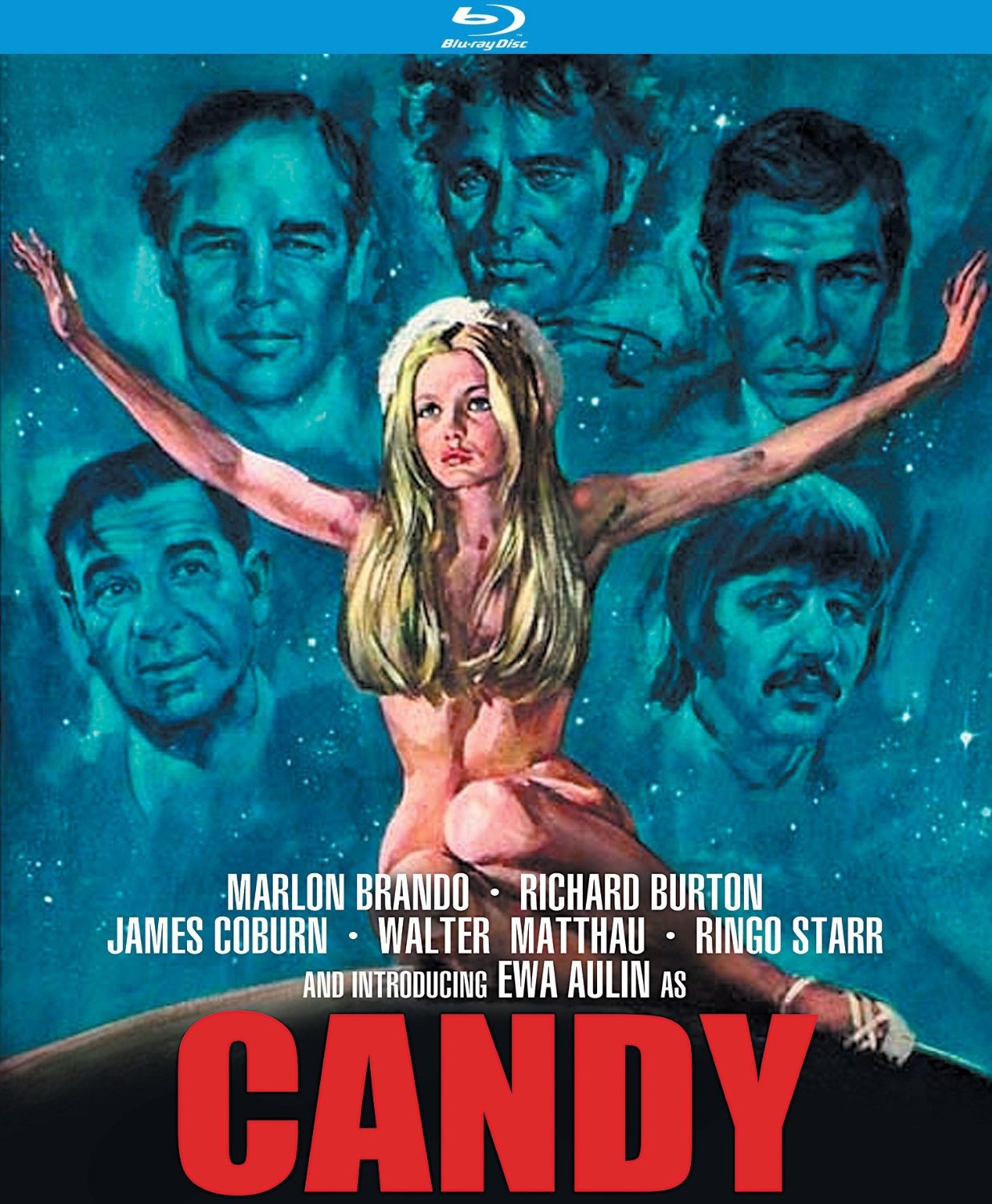With both 42nd Street and Gold Diggers of 1933 in general release and burning up the box office in the spring of 1933, Warner Bros. was already preparing another big musical to reunite director 42nd Street’s director, Lloyd Bacon, choreographer Busby Berkeley, and much of the cast. To Warners’ credit, mid-production they increased the budget to accommodate Berkeley’s wacky idea for a three-story waterfall set that is one of the great achievements of Footlight Parade. And yes, it’s only one of the achievements, because - bouncing back from the rather disappointing Gold Diggers picture - this is one Parade you don’t want to let go by.
James Cagney is a vaudeville producer who’s thrown out of work by the new fad called talking pictures. He joins Guy Kibbee and Arthur Hohl, fledgling movie moguls, and creates live stage musicals to act as prologues to their films. Soon, he’s got troupes traveling all over the country. Things are tough on Jimmy, though, as he’s got to contend with a company spy that lifts his best ideas for a rival outfit, a secretary (Joan Blondell) full of bright ideas and unrequited love; a hypochondriac dance director (Frank McHugh); a dippy censor (Hugh Herbert); two moon-eyed juveniles who can’t decide whether they want to hug or slap each other (Dick Powell and Ruby Keeler), a gold-digging ex-wife, a gold-digging girlfriend, and partners who are cheating him out of his share of the profits. As if that’s not enough, he’s got three days (three days!) to put together three complete musical acts to win a big contract and save the company.
The pleasures of Footlight Parade are many, led by Cagney stepping out of his usual screen persona to sing and hoof. Oh, he’s still a tough guy, but there’s something irresistible watching him dance: what a sensation this film must’ve caused back in 1933 when the movie public got to see him in a different kind of action. He garners some good laughs, too, as when he tells one of his stage managers who has advised him that the leading lady of one of his troupes has run off with her leading man: “Send a new couple right away. Make sure they’re not in love with each other. Send a couple that’s already married!” He also has some fun (and so does Warner Bros.) at the expense of the censor, who argues that their Sittin’ on the Backyard Fence number is inappropriate because the cats aren’t married and the kittens would be illegitimate!
Some of the bawdiness that we loved in 42nd Street is back; Blondell (who is absolutely wonderful here) tells her rival for Cagney’s affections, “As long as there are sidewalks, you’ve got a job!” It wouldn’t be long before the censors put a stop to cracks like this (and to jokes about censors).
Rather than stopping the show to present the show-stoppers, the Berkeley numbers are all presented bang-bang-bang to end the film. The first number, Honeymoon Hotel, is a witty and naughty piece along the lines of Shuffle Off to Buffalo, but even more playful. There’s a lot of foolin’ around going on in this place, and if the censors weren’t so worried about the illegitimate kittens they might’ve noticed what skimpy li’l outfits the blushing brides are wearing. Next is By a Waterfall, with an incredible full-size pool, waterfall, and countless dancing girls. It’s perhaps the most surrealistic routine in any Berkeley presentation; that Warners had a soundstage big enough for all this is hard to believe, but they expect us to suspend disbelief and go along with the premise that a movie theatre has room for it! Finally, Cagney gets a chance to shine as a sailor who is searching dives for his Shanghai Lil. After listening to Dick Powell and his tenor crooning, it’s nice to hear somebody Cagney do a number in a more “manly” style, that’s for sure. And I enjoyed the surprise tribute to newly elected President FDR and his National Recovery Administration.
Besides the film (which looks and sounds so good you won't believe it's not a brand new film produced in old-time style), the disc gives us a brief (16 minute) documentary on the film (alas, no commentary), plus four cartoons based on songs from Berkeley numbers and a pair of hit-and-miss one-reelers with radio and vaudeville acts.
One of the best, most enjoyable releases of the year, Warner Archive's Blu-ray of Footlight Parade Highly, highly recommended.


